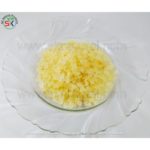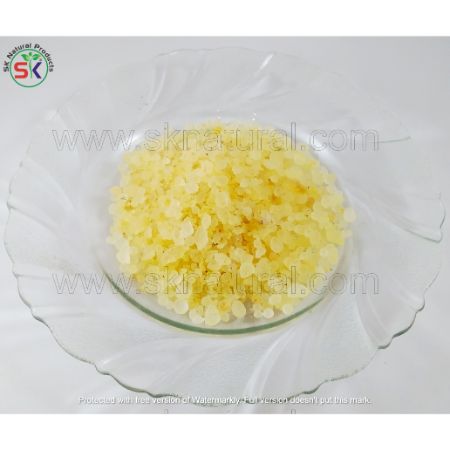Description
Mastagi Rumi at sknatural is the resin of plant Pistacia lentiscus Linn. It belongs to family “anacardiaceae”. It is Warm and dry in second order. Generally, people use its resin.
Other names:
Arabic Name(s): Mistaka
Urdu Name(s): Mastagi, `Alik Rumi, Kundar Rumi
English Name(s): Mastic, Mastich
Properties:
Stimulant and diuretic, tonic (restorative) for stomach and liver, carminative, demulcent, resolvent of inflammations, absorbent (of catarrh) for the internal organs, astringent, styptic, antiflatulent, appetitive, aphrodisiac, tonic for urogenital organs, expectorant.
Recommended dosage:
1-2 g.
Medicinal uses:
Traditionally, people have utilized Mastich as a masticatory to freshen breath and preserve dental health by maintaining teeth and gums. Its carminative and astringent properties make it a recognized remedy, extensively used in treating infantile diarrhea. Additionally, applying a cotton swab soaked in Mastich alcoholic solution to a carious tooth effectively alleviates toothache and provides temporary filling.
Moreover, Mastich serves as a component in various Unani products, perfumes, and incenses. Administered for its absorbent and styptic qualities, it effectively halts unwanted secretion of humors and bleeding. It proves effective in conditions such as haemoptysis, toothache, and bleeding gums. With its demulcent and expectorant properties, Mastich aids in treating cough and clearing the windpipe of obstructions.
Interestingly, Mastagi acts as a laxative for phlegm when combined with polyporous, with aloe serving as a laxative for biliousness, and with triphala (halilajat) acting as a laxative for atrabile. Additionally, it serves as a useful detersive for facial skin abnormalities and people include it in cosmetics to eliminate freckles and spots (as Ubtan).
Physicians, described it as harmful for patients suffering from anal ailments, may produce bloody urine and dermatitis. 






Reviews
There are no reviews yet.